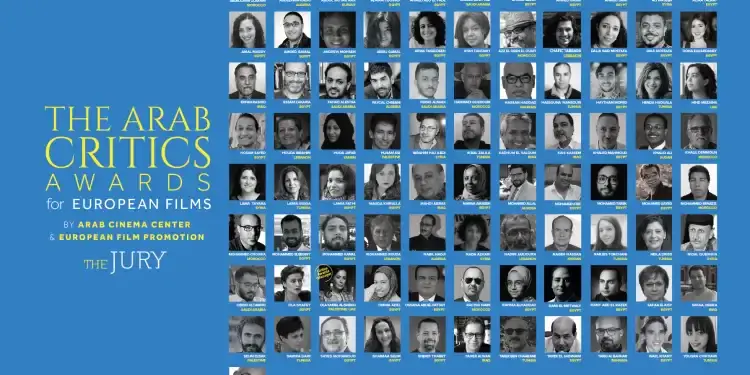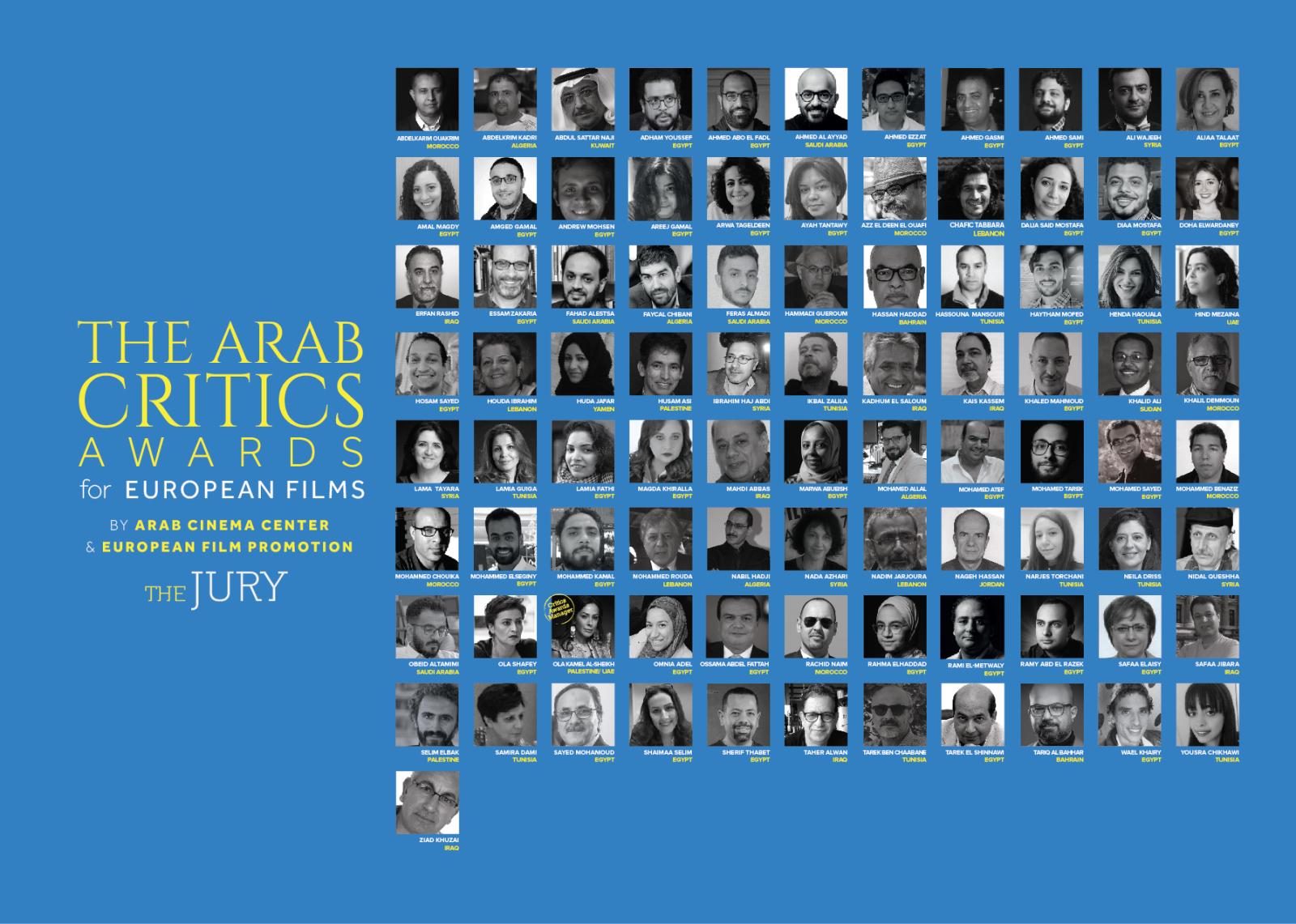The 7th edition of the El Gouna Film Festival, which will take place from October 24 to November 1, 2024, will host the awards ceremony for Arab criticism for European films, a joint initiative of the center of Arab cinema and the promotion of European cinema. This prize highlights 22 European films selected by members of the promotion of European cinema and national institutes for the promotion of films across Europe. These films were all presented or screened in the biggest international festivals, winning several prizes.
These 22 works will be judged by 89 renowned Arab criticism from 15 Arab countries. These criticisms will determine their three favorite films before revealing the big winner during the El Gouna film festival. Although Arab critics come from various horizons, Tunisia is represented by ten criticisms (including myself), adding a significant Tunisian dimension to this selection.
One of the films in competition, the magnificent The seeds of the sacred fig tree Director Mohammad Rasoulof, co -produced by Germany, made his world premiere at the Cannes Film Festival in May 2024, where he won four prizes, including the special jury prize and the Fipresci Prize. This film also represents Germany in the 2025 Oscar race for the best international film.
Among the other films in competition is The girl with a needle of Magnus von Horn (Denmark), presented in Cannes, as well as Israel Palestine on Swedish TV 1958-1989a documentary that explores the media representation of the Israeli-Palestinian conflict.
Besides these films, Lovable Norwegian director Lilia Ingolfsdottir, who triumphed at the Karlovy Vary festival, and Three Days of A Fish by Peter Hoogendoorn, which has earned its main actor the price of best actor, are also in the running. The village Next to Paradise from Mo Harawi, awarded for the best actress in Sarajevo, as well as Reinas From the Swiss director Klaudia Reynicke, winner of the Berlinale, enrich this selection.
Nine of these films are also candidates for 2025 Oscars in the category of the best international film. The films are:
- Julie Keeps Quiet by Leonardo Van Dijl (Belgium)
- Waves of Jiří Mádl (Czech Republic)
- The girl with a needle from Magnus von Horn (Denmark)
- The seeds of the sacred fig tree by Mohammad Rasoulof (Germany)
- Semmelweis of Lajos Koltai (Hungary)
- Flow de Gints Zilbalodis (Latvia)
- Family therapy of Sonja Professor (Slovenia)
- Reinas from Klaudia Reynicke (Switzerland)
- 8 Biwa Lake views by Marko Raat (Estonia)
The director general of the promotion of European cinema, Sonja Heinen, expressed her gratitude to Arab criticism: ” We are extremely grateful to Arab criticisms and journalists who watch this fine selection of 22 films from 22 European countries. We also appreciate the opportunity offered to make these films visible in the Arab world, thanks to the collaboration with the center of Arabic cinema and at the El Gouna Film Festival which hosts the ceremony for the award ceremony. »»
The co -founders and managers of the center of Arabic cinema, Alaa Karkouti and Maher Diab, have expressed their enthusiasm for this new edition of the prices of Arab criticisms: “ As always, it is a great pleasure to collaborate with the promotion of European cinema and the El Gouna film festival for the sixth consecutive year. But it is even greater pleasure to have the opportunity to give visibility to European cinema thanks to our Arab criticisms and to continue to expand horizons for European films and filmmakers in the Arabic -speaking region. »»
The prices of Arab criticisms for European films, launched in 2019 by the promotion of European cinema and the center of Arabic cinema, aim to strengthen the diversity of films in the Arab region and to arouse the interest of distribution and industry companies for quality European cinematographic works. This initiative also highlights the essential role of Arab criticism in promoting new perspectives and rapprochement between different cultures. Among the previous winners are God exists, his name is Petranya de Teona Strugar Mitevska (2019), Ondine by Christian Petzold (2020), 107 Mothers by Peter Kerekes (2021), Eo by Jerzy Skolimowski (2022) and FALLEN LEAVES by Aki Kaurismäki (2023).
This initiative reveals a common goal of strengthening cultural ties between European and Arab cinematographic worlds. The role of Arab cinema critics is essential here, because they play the role of smugglers between two distinct artistic universes. Their critical look, influenced by the social and cultural realities of the Arab world, makes it possible to appreciate these European films from a new angle, thus facilitating an enriching intercultural dialogue.
This collaboration between the center of Arab cinema and the promotion of European cinema also shows a concerted effort to make European cinema more accessible and better understood in a region where it sometimes remains underrepresented. By drawing attention to works that could otherwise go unnoticed, the prices of Arab criticisms for European films help to diversify the cultural choices available for Arab spectators, while encouraging wider recognition of the quality of European cinema.
In fact, this initiative highlights the importance of film criticism as a link between two continents, and emphasizes how successful cooperation can not only strengthen the links between Europe and the Arab world, but also widen the artistic horizons of each.
List of Arab criticisms in alphabetical order:
Abdelkarim Ouakrim (Morocco), Abdelkrim Kadri (Algeria), Abdul Sattar Naji (Kuwait), Ahmed Sami (Egypt), Ahmed Gasmi (Tunisia), Ahmed Al Ayyad (Saudi Arabia), Ahmed Ezzat (Egypt), Ahmed Abu El Fadl (Egypt), Ali Wajeeh (Syria), Aliaa Talaat (Egypt), Amal Magdy (Egypt), Amged Gamal (Egypt), Andrew Mohsen Naiem (Egypt) (Egypt), Arwa Tageldeen (Egypt), Ayah Tantawy (Egypt), Azz El Deen El Ouafi (Morocco), Chafic Tabbara (Lebanon), Dalia Said Mostafa (Egypt), Diaa Mostafa (Egypt), Doha Elwardaney (Egypt), Erfan Rashid (Iraq), Essam Zakaria (Egypt), Fahad Alestsa (Saudi Arabia), Fayçal Chibani (Algeria), Feras Almadi (Saudi Arabia), Hammadi Gueroum (Morocco), Hassan Haddad (Bahrain), Hassouna Mansouri (Tunisia), Haytham Mofed (Egypt), Henda Haouala (Tunisia), Hind Mezaina (United Arab Emirates), Hossam Sayed (Egypt), Houda Ibrahim (France), Huda Jafar (Yemen), Husam Asi (Palestine), Ibrahim Haj Abdi (Syria), Ikbal Zalila (Tunisia), Kadhum El Saloum (Iraq), Kais Kassem (Iraq), Khaled Mahmoud (Egypt), Khalid Ali (Sudan), Khalil Demmoun (Morocco), Lama Tayara (Syria), Lamia Gguiga (Tunisia), Magda Khirallah (Egypt), Mahdi Abbas (Iraq), Marwa Abueish (Egypt), Mohamed Allal (Algeria), Mohamed Atef (Egypt), Mohamed Tarek (Egypt), Mohamed Sayed Abdelrehim (Egypt), Mohamed Kamal (Egypt) Elseginy (Egypt), Mohammed Benaziz (Morocco), Mohammed Chouika (Morocco), Mohammed Rouda (Lebanon), Nabil Hadji (Algeria), Nada Azhari (Syria), Nadim Jarjoura (Lebanon), Nageh Hassan (Jordan), Narjes Torchani (Tunisia), Neila Driss (Tunisia), Nidal Queshha (Syria), Obeid Altamimi (Saudi Arabia), Ola Shafey (Egypt), Ola Kamel al-Sheikh (Palestine), Omnia Adel (Egypt), Ossama Abdel Fattah (Egypt), Rachid Naim (Morocco), Rahma Elhaddad (Egypt) El-Metwaly (Egypt), Ramy Abd El Razek (Egypt), Safaa Elaisy (Egypt), Safaa Jibara al-Saleh (Iraq), Saleem Albeik (Palestine), Samira Dami (Tunisia), Sayed Mohamoud (Egypt), Shaimaa Selim (Egypt), Sherif Thabet (Egypt), Taher Alwan (Iraq), Tarek Ben Chaabane (Tunisia), Tarek El Shinnawi (Egypt), Tariq Al Bahhar (Bahrain), Wael Khairy (Egypt), Yousra Chikhawi (Tunisia), Ziad Khuzai (Iraq).
Neïla Driss









